BTS and Nicki Minaj. Blackpink and Cardi B. These artists hail from opposite sides of the world, yet their names stand right next to each other under the titles of a recent series of crossovers between the Korean pop music (K-pop) industry and Western artists. Earlier this month, K-pop girl group Blackpink released their first full-length studio album, titled “The Album,” on Oct. 2. In the debut album, they dropped two collaborations with high-profile Western artists: “Ice Cream” with Selena Gomez and “Bet You Wanna” with Cardi B.
K-pop groups’ meteoric rise to fame in the United States has also attracted a steady stream of fame-chasers. BTS, Blackpink, EXO, Twice, NCT 127 and more have become increasingly popular over the past few years, with older groups such as BIGBANG and Girls’ Generation paving the way for international expansion in the early 2010s. BTS, a seven-member boy band, and Blackpink, a four-member girl group, have arguably become the most influential groups at the moment, setting worldwide records on the top charts with their songs.
Over the past few years, as K-pop has begun entering the mainstream Western market, American media sources have jumped at the opportunity to boost their own viewership and gain extra clicks and views from the K-pop fanbase, even though the superficial nature of these interactions has ultimately come at a cost for many of the K-pop artists themselves.
Although some American interviewers ask insightful and specific questions to the Korean artists, others have failed to do adequate research prior to speaking with K-pop groups, creating an uncomfortable atmosphere not only for the live audiences watching the show but also for the millions of fans who later view the recordings online.
“I definitely think that there are some interviewers that really do their research and really ask profound questions that the fans want to know, and then I feel like some of them just definitely use BTS as a headline article,” Emily Zhou (11) said. “They don’t really do the research, they just kind of know Korean culture in general, and they don’t really go into depth of what the fans really want to know.”
This has sparked controversy among fans, especially on social media platforms such as Twitter. With K-pop hitting its stride in the United States during 2018, the criticisms became increasingly prominent. Many have accused media sources of only interacting with their K-pop guests on a superficial level, asking questions that do not relate to the artists themselves in any way. For instance, in an interview with artist Jay Park on Ebro in the Morning, fans called out the interviewer for failing to do his research.
According to fans, the interviewer seemed to have no knowledge of who his guest was and treated Park disrespectfully on the show, drawing disapproval from the comments section of the Youtube video recording.
“A lot of people on social media criticize [not just] Western interviewers but even some artists for clout chasing,” Ray Wang (12) said. “I think part of why people are mad is that sometimes the questions are very generic, and they’ll only really be interested in asking ‘what’s your favorite American this or American that?’”
Not all interactions between the K-pop industry and Western media have occurred on such a shallow level. Many American shows have also welcomed their guests warmly, and the hosts clearly appreciate K-pop as a musical genre and respect the artists. On Youtube, K-pop groups are spotlighted just like any other Western media personality, with interviewers off-screen for the entire duration of the video as the artists complete interesting activities and discuss their daily lives and personal hobbies. For instance, Buzzfeed featured a video of BTS playing with puppies, with the artists themselves leading the interview and the staff handing them interview questions on pieces of paper.
“When the interviews are more artist-based, where they lead the entire video or interaction, I think that’s a very good way to interact with international fans, rather than the interviewer simply asking the questions to the artist,” Claire Bauschlicher (9) said.
Media coverage has also served K-pop groups in many beneficial ways, increasing K-pop’s influence in the United States and also helping the artists reach more potential Western audiences. In the next few years, K-pop’s popularity can be expected to attain even greater heights worldwide: wider recognition of the K-pop industry and more meaningful interactions between both Western and Korean artists will follow.
“I think K-pop as a genre is becoming more respected in the West as well. Over time more and more people are starting to recognize BTS as not just one of the biggest K-pop groups, but one of the biggest pop groups in the world,” Ray Wang (12) said.
This story was originally published on Harker Aquila on October 28, 2020.



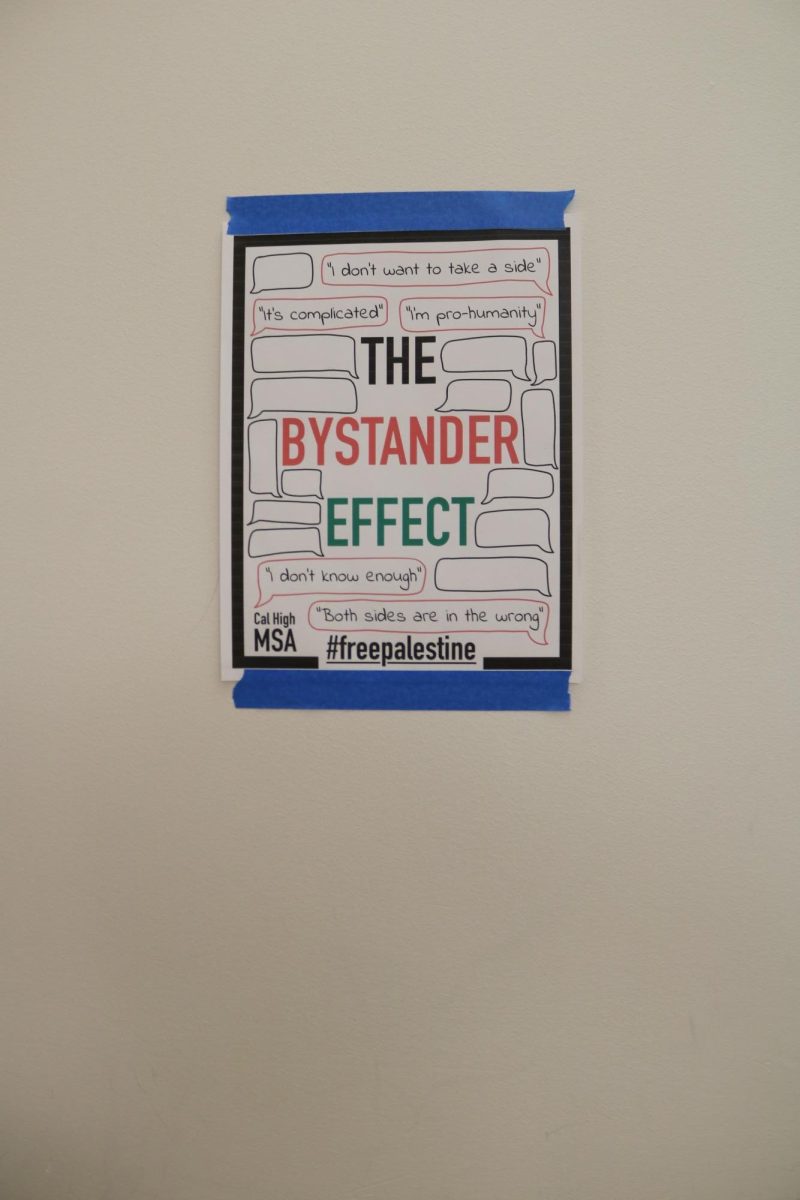








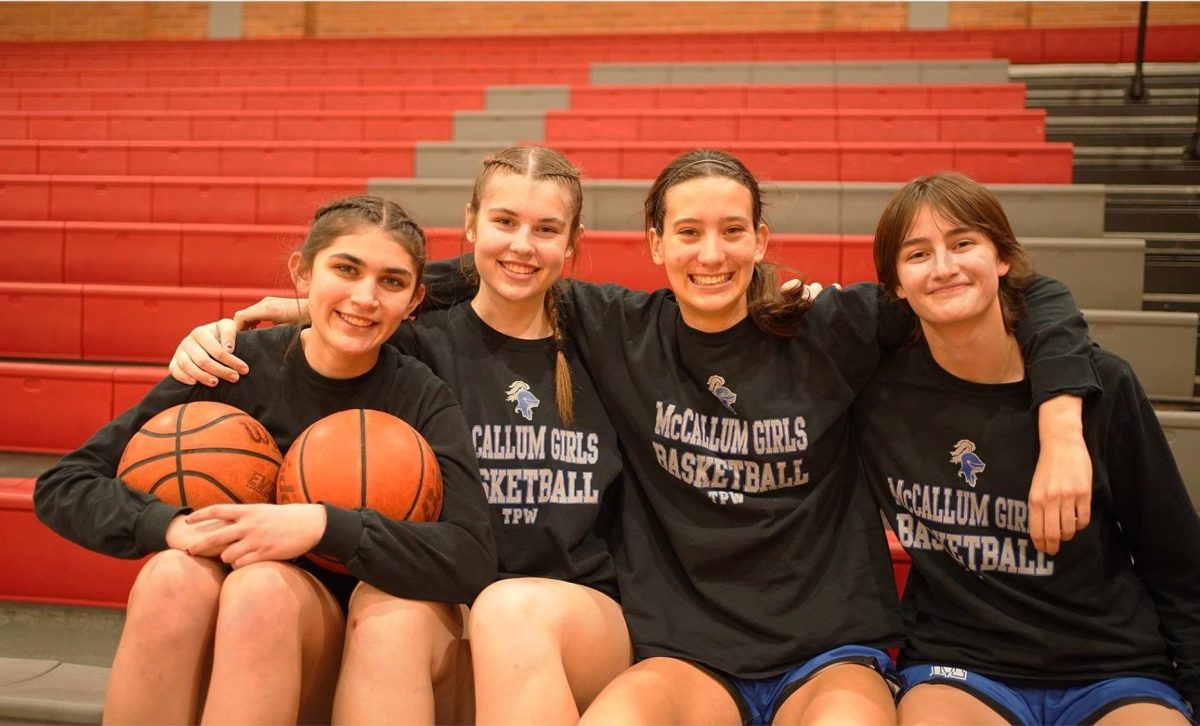


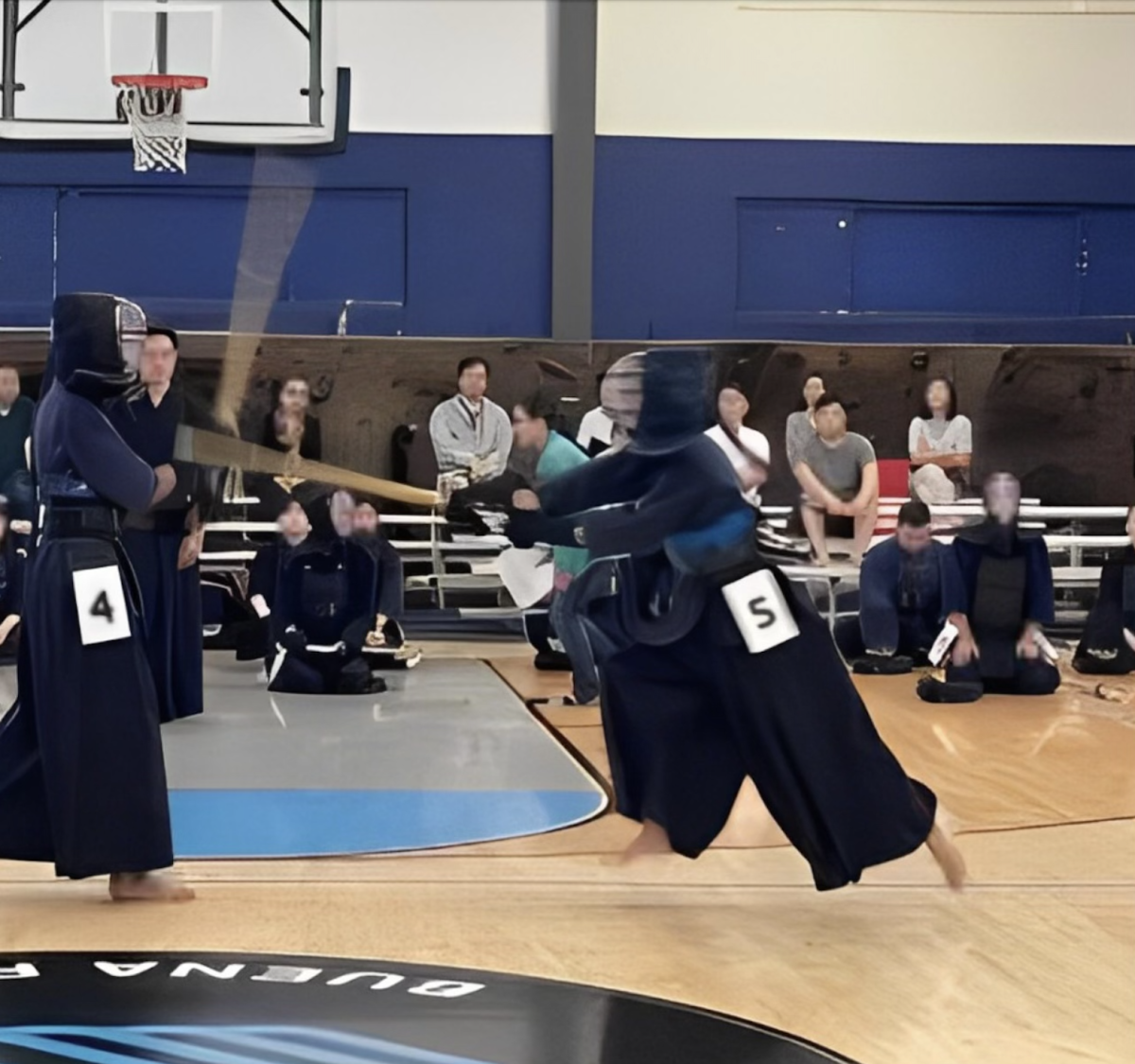
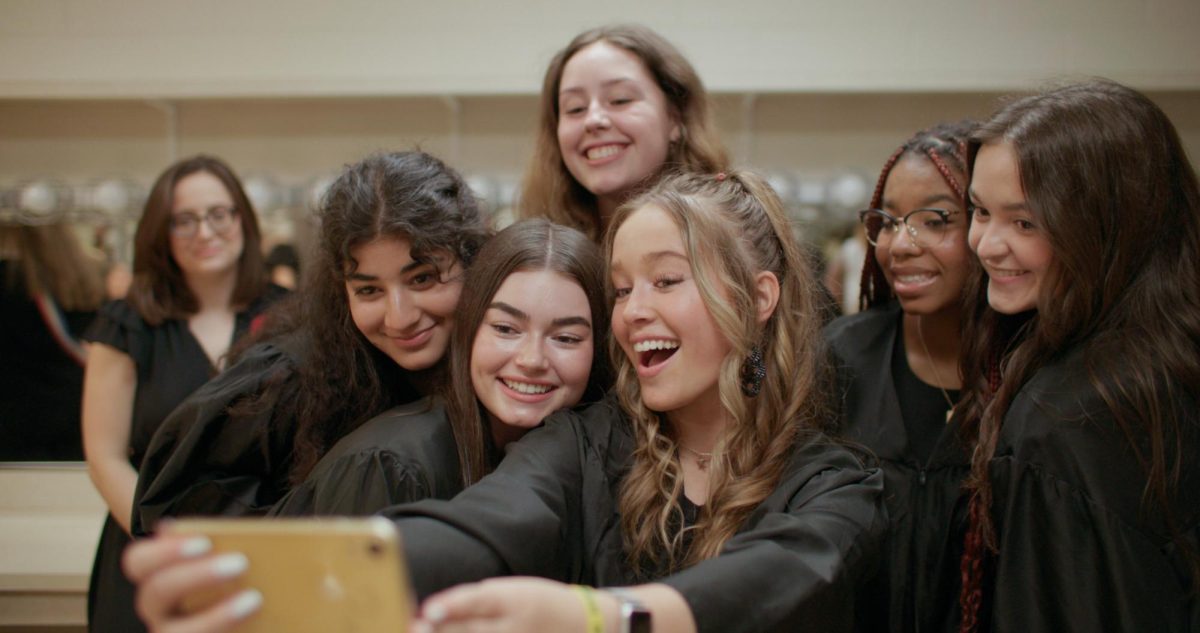
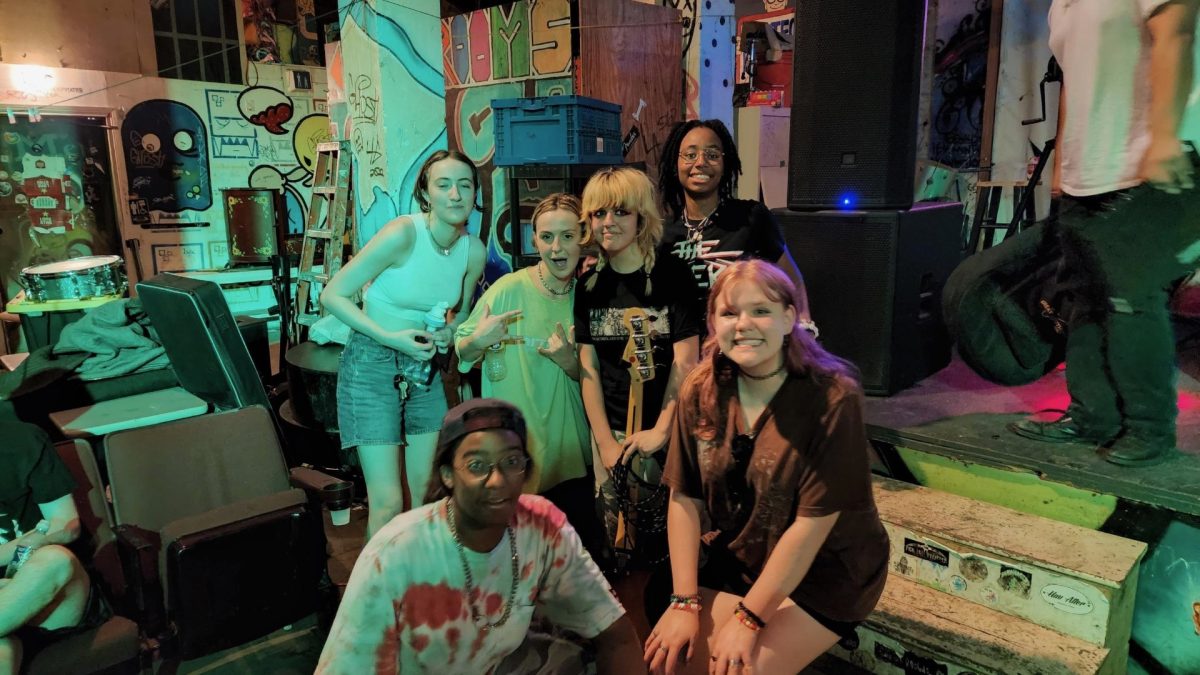














![IN THE SPOTLIGHT: Junior Zalie Mann performs “I Love to Cry at Weddings,” an ensemble piece from the fall musical Sweet Charity, to prospective students during the Fine Arts Showcase on Wednesday, Nov. 8. The showcase is a compilation of performances and demonstrations from each fine arts strand offered at McCallum. This show is put on so that prospective students can see if they are interested in joining an academy or major.
Sweet Charity originally ran the weekends of Sept. 28 and Oct. 8, but made a comeback for the Fine Arts Showcase.
“[Being at the front in the spotlight] is my favorite part of the whole dance, so I was super happy to be on stage performing and smiling at the audience,” Mann said.
Mann performed in both the musical theatre performance and dance excerpt “Ethereal,” a contemporary piece choreographed by the new dance director Terrance Carson, in the showcase. With also being a dance ambassador, Mann got to talk about what MAC dance is, her experience and answer any questions the aspiring arts majors and their parents may have.
Caption by Maya Tackett.](https://bestofsno.com/wp-content/uploads/2024/02/53321803427_47cd17fe70_o-1-1200x800.jpg)
![SPREADING THE JOY: Sophomore Chim Becker poses with sophomores Cozbi Sims and Lou Davidson while manning a table at the Hispanic Heritage treat day during lunch of Sept 28. Becker is a part of the students of color alliance, who put together the activity to raise money for their club.
“It [the stand] was really fun because McCallum has a lot of latino kids,” Becker said. “And I think it was nice that I could share the stuff that I usually just have at home with people who have never tried it before.”
Becker recognizes the importance of celebrating Hispanic heritage at Mac.
“I think its important to celebrate,” Becker said. “Because our culture is awesome and super cool, and everybody should be able to learn about other cultures of the world.”
Caption by JoJo Barnard.](https://bestofsno.com/wp-content/uploads/2024/01/53221601352_4127a81c41_o-1200x675.jpg)






